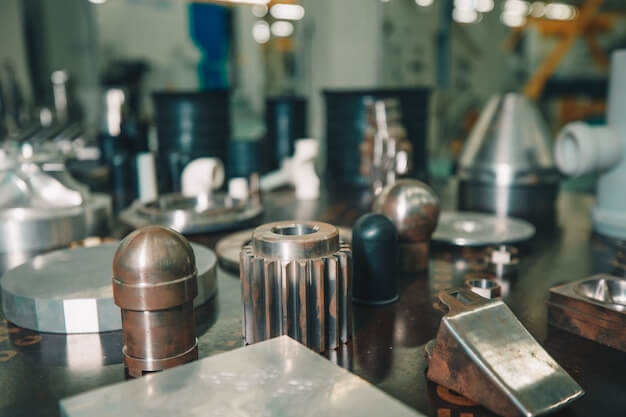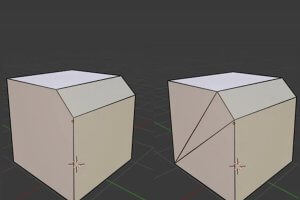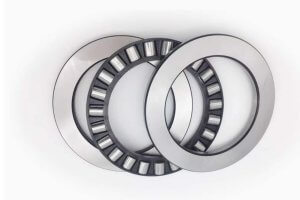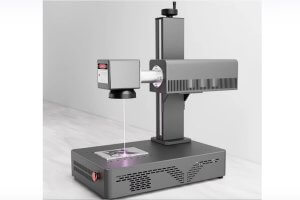Introduction to CNC Machining and Custom Marine Propulsion Systems
CNC machining, or Computer Numerical Control machining, is a crucial technological advancement that entails the use of computers to control machine tools. This precise method enables high accuracy in developing various complex parts. On the other hand, customized marine propulsion systems represent a sector which greatly benefits from such innovative methods of manufacture. These tailored propulsion systems are specifically designed to improve a boat’s speed, stability, fuel efficiency, and maneuverability according to each vessel’s individual requirements. Both these technologies have seen substantial breakthroughs recently.
- CNC Machining: It involves pre-programmed software dictating the movement of factory equipment and machinery; this process can be used to command intricate apparatuses that cut, shape, and form materials into the desired dimensions with an incredibly high degree of precision.
- Custom Marine Propulsion Systems: These bespoke systems can include enhancements like propellers, drives, and gears that are custom-designed for specific performance parameters of a given marine vehicle. By tailoring these elements, it ensures optimal performance and increased life span of the entire system.
Innovation in CNC Machining
Recent advancements in CNC (Computer Numerical Control) machining have revolutionized the manufacturing of custom marine propulsion systems. Integrating automation technology, such as 5-axis milling machines and multi-tasking lathes, enables faster operation speeds, increased precision, and less waste material during production. Furthermore, AI(Artificial Intelligence)-enhanced software tools facilitate more intuitive programming including simulation and optimization functions to minimize human error and increase efficiency.
These innovations hold significant importance for compressive manufacturing solutions involving marine propulsion systems. Firstly, they allow for precise crafting of intricate designs involved in manufacturing various parts of a complex propulsion system, enhancing overall performance. Secondly, automated machine transitioning decreases downtime between different process stages while increasing productivity. Lastly, with improved optimization algorithms, energy consumption has significantly reduced, resulting in cost-effective operations and lesser environmental impact.
- Faster operation speeds: The latest CNC machines operate at high speeds, ensuring rapid production.
- Increased Precision: Advanced AI-enhanced software ensures accurate machining, leading to the creation of superior quality marine propulsion systems.
- Lower Waste Material: Cutting-edge technologies integrated into CNC machinery results in lower wastage of raw materials due to increased accuracy.
Understanding CNC Machining Basics:
- CNC machining offers advantages such as precision, quick production, and the ability to customize marine propulsion system parts.
- The go-to process for custom marine propulsion system parts is CNC machining.
- To explore CNC machining for custom marine propulsion systems, consider utilizing CNC Machining eBook for valuable insights and considerations.
Role of CNC Machine in Marine Propulsion Systems
The precision required when creating marine propulsion components is a critical aspect that necessitates the use of Computer Numerical Control (CNC) machines. With marine propulsion systems requiring multiple high-grade parts to function accurately, the precision provided by CNC machining becomes paramount. The error margin in this context should be virtually nonexistent as any slight miscalculations could drastically affect the performance and durability of the marine propulsion system. For instance:
- A slightly larger or smaller component would not fit well with other sections,
- An improperly grinded surface can lead to increased friction and reduced efficiency,
- Inaccuracy in drilling holes may disrupt the balance of specific elements.
CNC machines role in achieving such vital accuracy involves employing computerized controls and machine tools to remove layers from a stock piece—also known as “blank”—at exceedingly precise standards. This technological innovation grants an added degree of control in terms of speed, position, coordination, feed rate, and other key manufacturing details; thereby eliminating the risk of manual errors providing consistent and superior quality components for marine propulsion systems.
Benefits of Innovative CNC Machining for Marine Industry
The innovative use of CNC machining in the marine industry comes with several benefits. One significant advantage is the increased efficiency. The precision that comes with this technology minimises wasted resources and drastically reduces error margin in manufacturing propulsion systems, leading to higher productivity levels.
Besides operational efficiency, another benefit is its ability to lead to improved performance of the propulsion systems. Here, parts crafted through CNC machining often surpass their alternatives in quality, resulting in better functioning and longevity of marine equipment.
A noteworthy example of its application is how the technology has improved the propeller design process. Traditional methods were time-consuming and prone to inaccuracies – a hindrance in an industry where precise dimension control is critical. With CNC machining, not only has the speed of production increased but it also allows for intricate designs that improve hydrodynamic efficiency while maintaining optimal structural integrity.
Impact of Custom Solutions for Marine Propulsion Systems
Marine propulsion systems immensely benefit from CNC machining, which allows customization of various components to enhance operational efficiency and productivity. Varied marine propulsion systems like outboard motors, sterndrives, inboards, jet drives, and pod-drives can be optimized with custom parts created through CNC technologies. This innovative manufacturing process positively impacts their functionality by ensuring utmost precision, reducing wastage, and avenue for exploring intricate designs, thus augmenting their performance.
- Outboard Motors: A robust CNC machine can craft customized motor parts that are more streamlined, enhancing the speed and power of an outboard engine.
- Sterndrive units: Improving the propeller design via CNC machining results in a smoother, faster ride without compromising on fuel efficiency.
- Inboards or Jet Drives: These mechanisms can avail from CNC machined tailor-fit parts for gear enhancement leading to improved towing capacity.
- Pod-drives: Accurate replication of necessary parts by way of CNC technology optimizes these lower unit engine types for superior maneuverability in large vessels.
The precise detailing offered by CNC machining increases the durability of each component, minimizing frequent replacements and associated costs. Hence, such technological interventions exemplify the symbiosis between innovation and practicality in advancing marine propulsion mechanisms.
Other Articles You Might Enjoy
- The Evolution of CNC Machining Technology: From Traditional to Advanced Methods?
The Evolution of CNC Machining Technology: From Traditional to Advanced Methods CNC (Computer Numerical Control) Machining Technology refers to the automation of machine tools that operates through a set of…
- Unlocking New Possibilities in CNC Machined Titanium Medical Devices
Introduction to CNC Machined Titanium Medical Devices The prevalence of CNC machined titanium medical devices in the healthcare sector demonstrates their immense significance and usefulness. This technology furnishes an essential…
- CNC Aluminum Machining Services: Advanced Techniques for Perfect Parts
CNC Aluminum Machining Services In the current manufacturing landscape, CNC aluminum machining services play a pivotal role. CNC which simply translates to 'Computer Numerical Control', is an advanced technique used…









